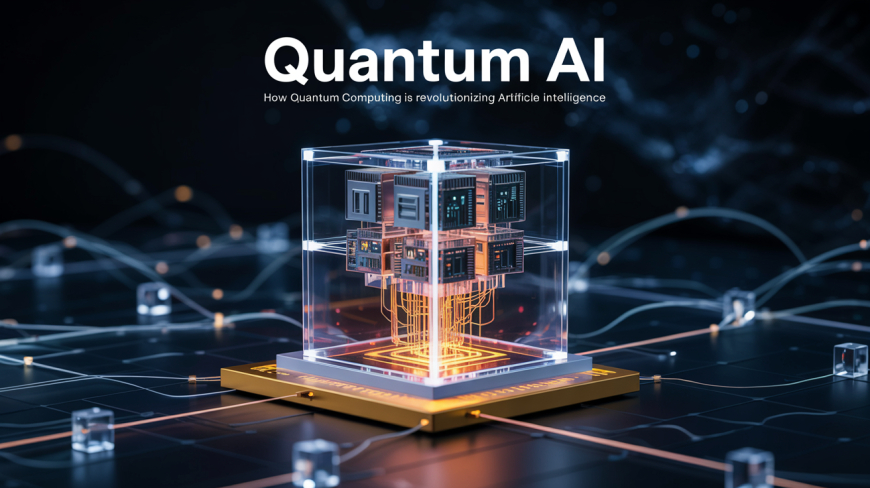Quantum AI: How Quantum Computing is Revolutionizing Artificial Intelligence
Quantum Computers and Artificial Intelligence: The Power of the Future

Quantum Computers and Artificial Intelligence: The Power of the Future
Introduction
In today’s computing landscape, artificial intelligence (AI) and quantum computers represent two of the most groundbreaking revolutions. While AI has made significant progress in solving complex problems, quantum computing has the potential to push the boundaries of classical computing by exponentially increasing computational power. The fusion of these two technologies could transform industries, science, and everyday life.

What Are Quantum Computers?
Quantum computers differ from classical computers by leveraging quantum mechanics principles. Unlike classical computers, which process data in bits (0 or 1), quantum computers use quantum bits (qubits), which can exist in multiple states simultaneously due to superposition and entanglement. This enables quantum computing to perform computations at an unprecedented speed.
The Intersection of AI and Quantum Computing
Artificial intelligence relies on processing massive datasets and optimizing learning processes. However, some calculations and optimization problems take an enormous amount of time on classical computers. This is where quantum computing can significantly accelerate AI development.
1. Accelerated Learning and Optimization: Quantum computers can enhance AI algorithms by speeding up the training of machine learning models. Deep learning algorithms working on large datasets can be trained more efficiently using quantum-powered optimization techniques.
2. Enhanced Data Processing: Quantum computing can handle vast amounts of data much faster than classical systems, making AI-driven data analysis more efficient in fields such as healthcare, finance, and climate modeling.
3. Quantum-Enhanced AI Algorithms: Quantum machine learning (QML) is an emerging field aimed at integrating quantum computing power into AI techniques. QML has the potential to solve highly complex problems beyond classical capabilities.
Potential Applications of Quantum AI
-
Drug Discovery and Biotechnology: Quantum AI can simulate biological processes such as protein folding, accelerating drug development and medical research.
-
Finance and Risk Analysis: Quantum computing can optimize trading strategies, analyze financial markets, and perform risk assessment faster than classical computers.
-
Autonomous Systems and Robotics: Quantum-powered AI can improve decision-making in autonomous vehicles and robotic systems.
-
Cybersecurity: Quantum AI can create advanced encryption methods, enhancing cybersecurity measures.
Challenges in Quantum AI Integration
While quantum computing and AI hold immense potential, several challenges need to be overcome:
-
Hardware Development: Quantum computers are still in their early stages and face scalability issues.
-
Error Correction and Stability: Qubits are highly sensitive, leading to high error rates.
-
Algorithm Development: Specialized quantum AI algorithms need to be designed, tested, and refined for practical use.
Conclusion
Quantum computers and artificial intelligence are two transformative technologies that complement each other in solving complex computational problems. The integration of quantum computing with AI could revolutionize industries, providing solutions to challenges that were previously considered unsolvable. As these technologies advance, we can expect groundbreaking changes in science, industry, and everyday life.


 admin
admin 





